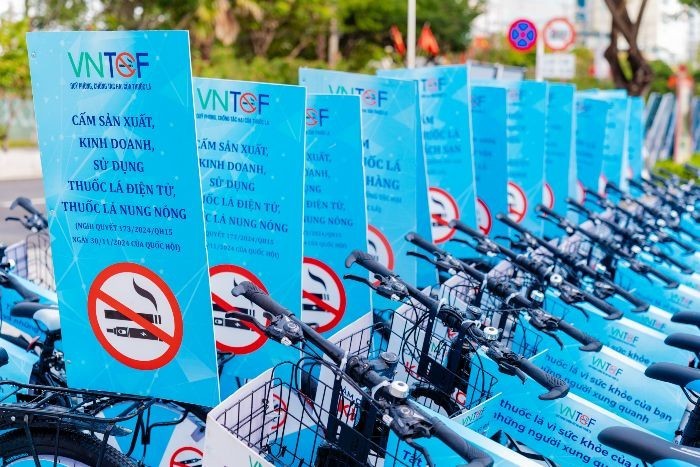Tobacco is the leading cause of disease and death worldwide, claiming over 8 million lives annually, according to Dr. Ha Anh Duc, head of the Ministry of Health's Department of Medical Services Administration and head of the Tobacco Harm Prevention Fund.
Vietnam has an estimated 15 million smokers, and thousands of non-smokers are exposed to secondhand smoke. That's why creating smoke-free environments in public places such as hotels and restaurants is so important, Dr. Ha Anh Duc said.
He noted that beyond health benefits, smoke-free spaces foster a clean, civilised, and tourist-friendly image, especially as “green” and “sustainable tourism” are now global trends. Hotels and restaurants, he said, should take the lead, making smoke-free environment a service quality standard. Individuals should also act as “smoke-free ambassadors,” reminding others to maintain healthy shared spaces, he was quoted by Dau tu (Vietnam Investment Review) newspaper as saying.
The Law on Tobacco Harm Prevention and Control clearly stipulates that hotels must be smoke-free indoors, except in designated areas meeting strict criteria. Lobbies, corridors, dining rooms, guest rooms, and workplaces must display “No Smoking” signs. Designated areas, if any, must be separate, ventilated, and equipped with warning signs and fire safety systems. Hotels unable to meet these conditions are encouraged to ban smoking indoors altogether.
To enforce these rules, hotels should develop internal regulations, post clear notices in lobbies, corridors, and guest rooms, and inform both staff and guests through materials or check-in announcements.
Staff training is also essential, covering tobacco harms and techniques for reminding guests respectfully but effectively. Some businesses encourage employees to quit smoking and honour staff who actively support the smoke-free model, helping build a safer and more professional environment.
Several localities have already recorded success from this model. In Ha Long ward, Quang Ninh province, nearly all hotels and tourist sites display no-smoking signs, with staff required to avoid smoking at work and to remind guests. One hotel owner reported higher revenues after adopting the model, thanks to customers who prefer clean, responsible services. Hoi An in Da Nang City, has pioneered “smoke-free tourism” across its ancient town, heritage sites, and hotels, while Ninh Binh province has implemented the model in Trang An and Bai Dinh with training and communication support. Hotels and restaurants in Nha Trang, Khanh Hoa province, have also pledged compliance.
Still, challenges remain. The growing popularity of e-cigarettes and heated tobacco products, marketed as “cleaner” alternatives despite containing nicotine, has hindered efforts. Public awareness remains low, with some viewing smoking as a personal right while overlooking its harmful effects on others. Weak law enforcement, including limited inspections and penalties, further reduces effectiveness.
Experts emphasise that broader and more sustainable progress requires coordinated action. Local authorities should issue clear guidelines for “smoke-free destinations,” while penalties must be consistently applied. The health and tourism sectors should expand communication, using multilingual campaigns, airport flyers, short videos on social media, and signage at attractions.

Businesses, meanwhile, are encouraged to promote “smoke-free brands” as a competitive advantage. Certification, awards, or integration into hotel ranking systems could serve as incentives. Training staff to remind guests politely yet firmly is also vital.
Creating smoke-free environments at hotels and restaurants, experts conclude, is not only about protecting public health but also about elevating tourism services, aligning with global sustainability trends, and strengthening Vietnam’s image as a civilised, friendly, and responsible destination.
























